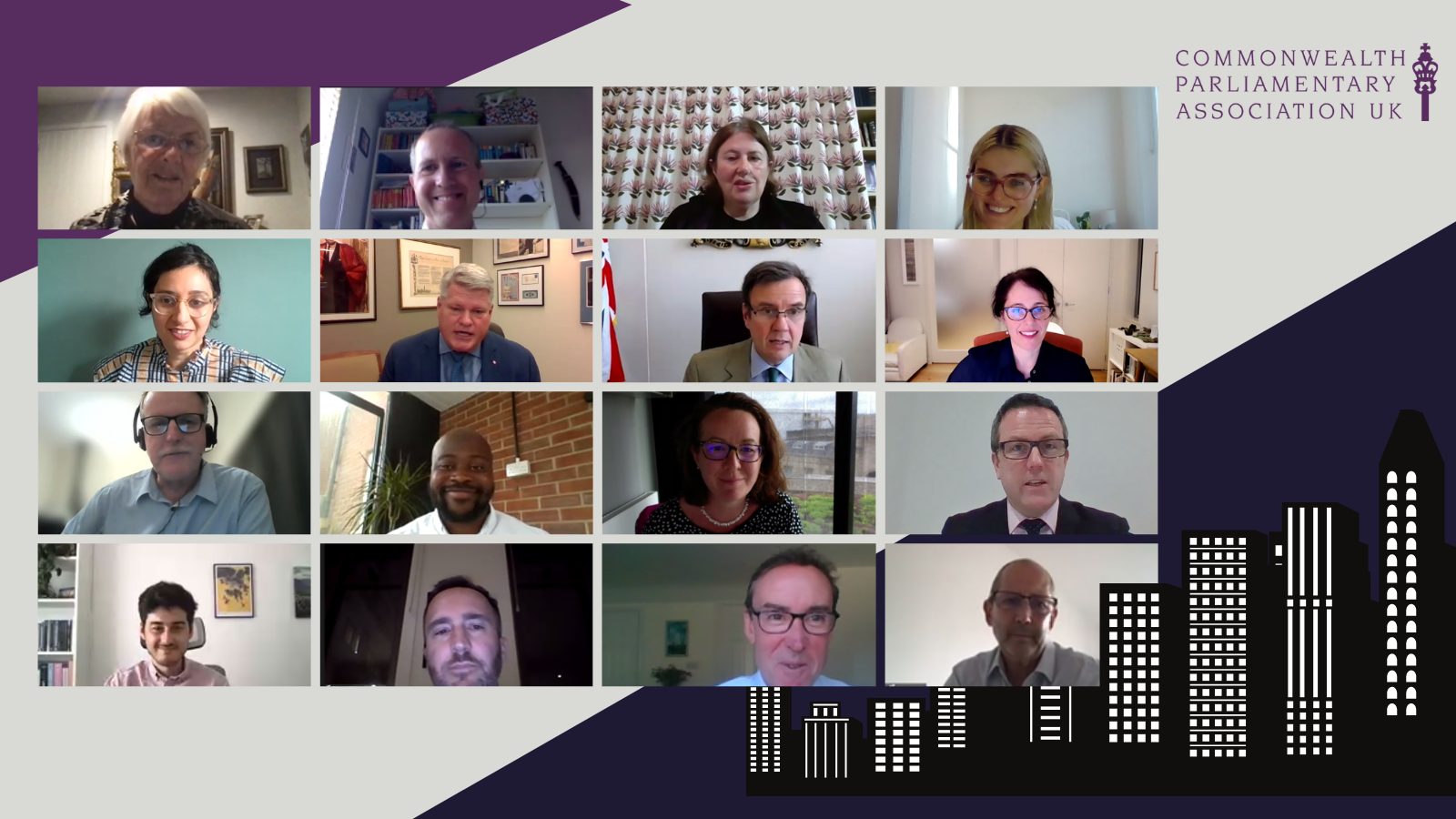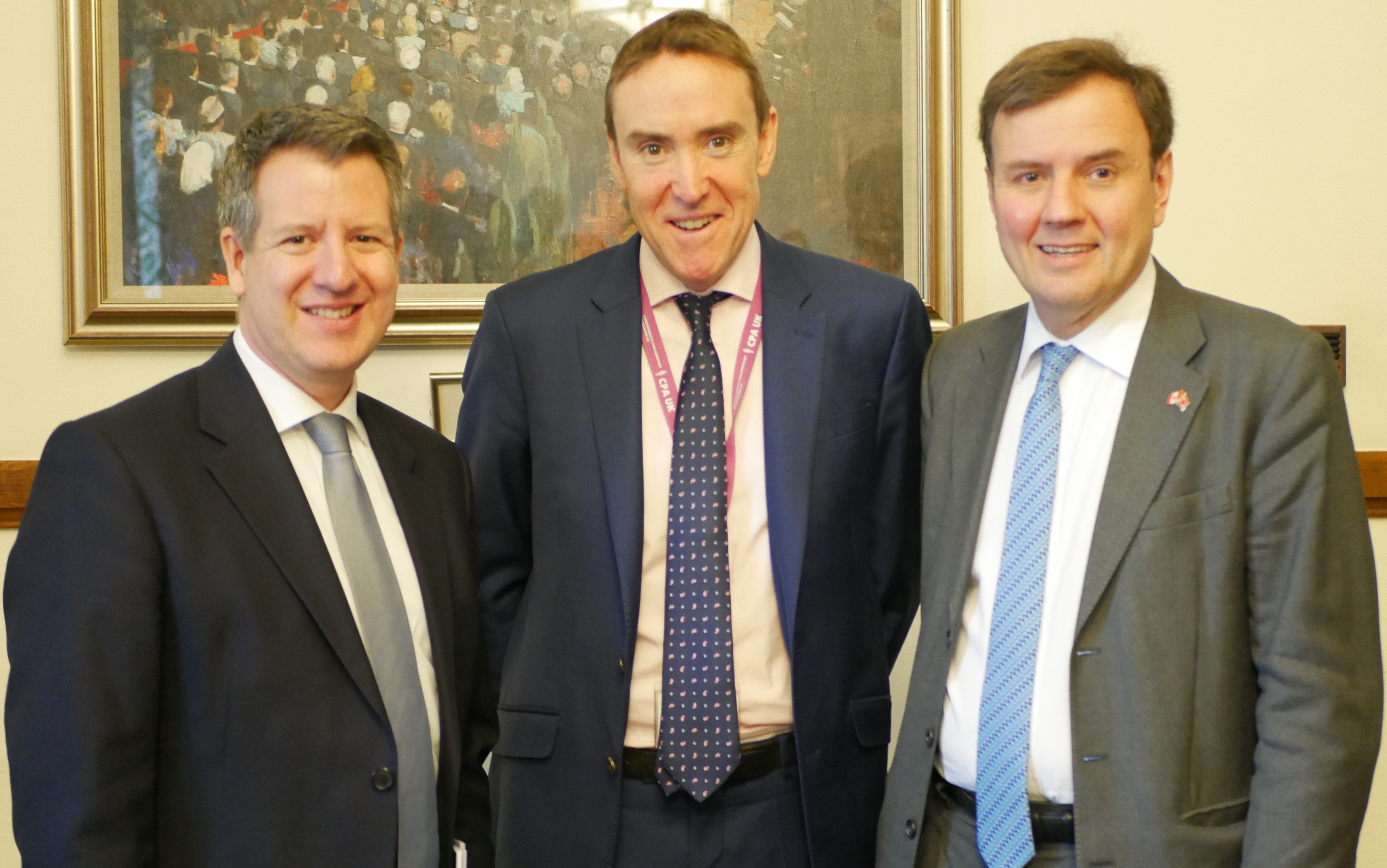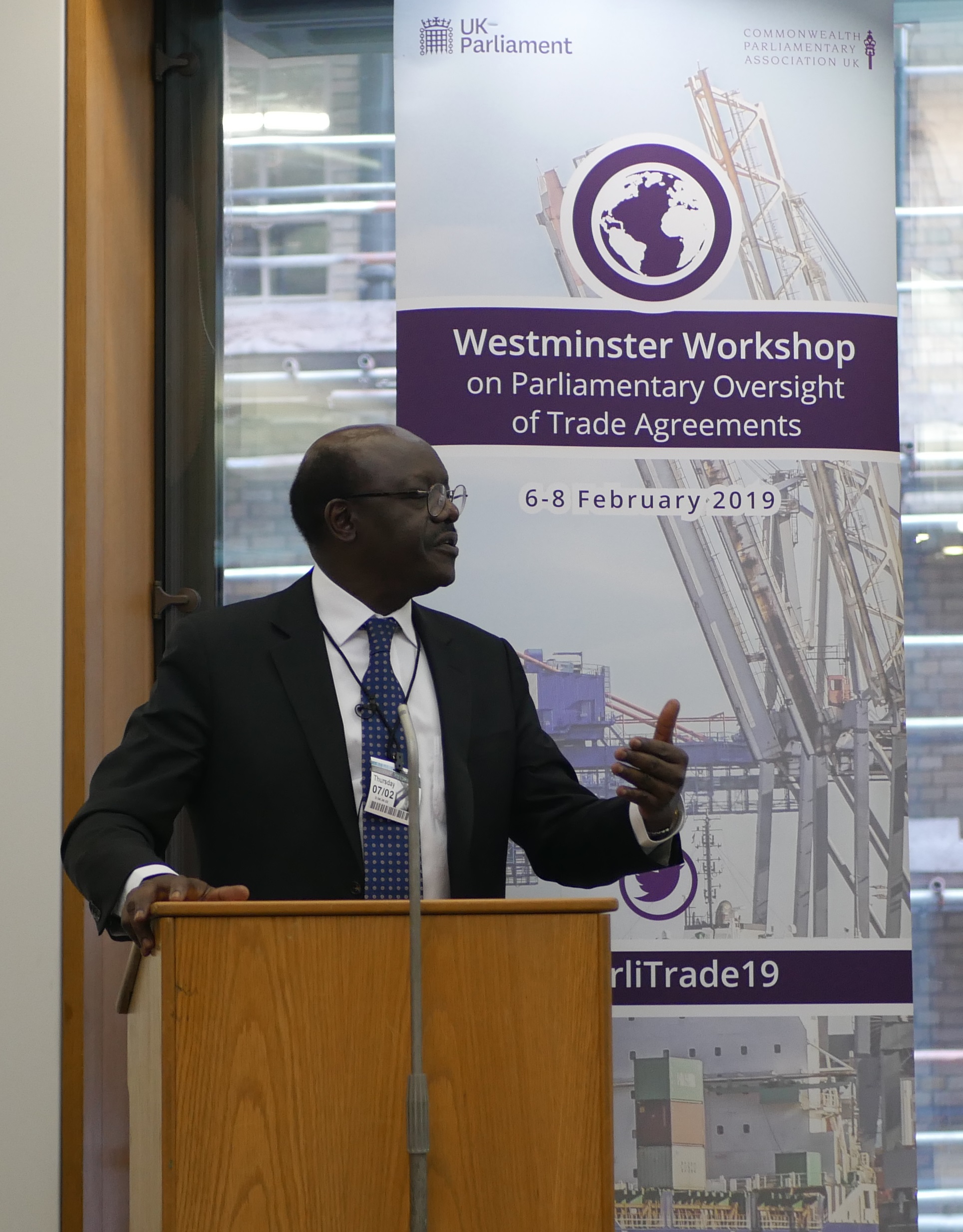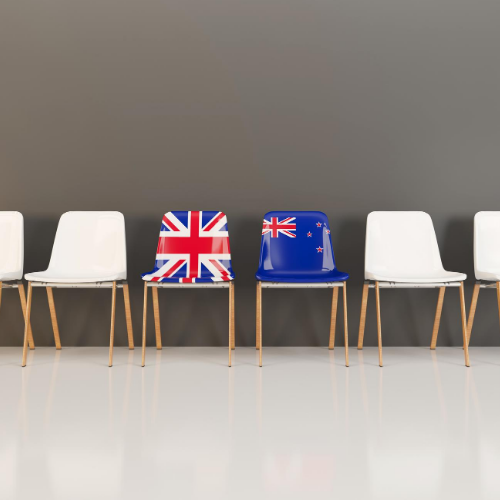UK Parliamentarians explore their role in scrutinising and negotiating trade deals
Published 12 July 2021

In June 2021, CPA UK hosted a series of six virtual workshops on International Trade deals. Over 50 delegates from 13 Commonwealth nations came together to discuss Parliament’s involvement in Trade Agreements with experienced politicians and international experts. Accomplished speakers shared their knowledge of international trade processes and highlighted ways that Commonwealth Parliaments can ensure all trade decisions serve the public.
The workshop series came at a crucial time for the UK Parliament. After almost 50 years as part of the European Union, the UK is now independent and responsible for negotiating its own trading relationship with the rest of the world. This series allowed UK Parliamentarians the opportunity to discuss their role in negotiating and scrutinising trade deals with Commonwealth colleagues and trade experts who have greater exposure to this area of work. Delegates were able to explore techniques for facilitating fruitful deals and learn about mechanisms for guaranteeing effective parliamentary oversight.
CPTPP
This workshop series centred on a specific trade agreement between thirteen countries known as ‘the Comprehensive and Progressive Trans-Pacific Partnership’ or ‘CPTPP.’ CPTPP is increasingly relevant to Commonwealth trade, with five Commonwealth nations (Australia, Brunei, Canada, Malaysia, and New Zealand) already part of the agreement, and several others considering joining. The UK formally applied to join CPTPP in February 2021, with official negotiations beginning in June 2021. Given current relevance of CPTPP, this agreement was chosen as a case-study for the workshop series.
Discussions focused on the techniques used by CPTPP parliaments to maximise the benefits of the trade deal for their nations. The UK’s chief negotiator for CPTPP, Graham Zebedee, and the Minister of State for Trade, Rt Hon. Greg Hands, also met with UK delegates at the beginning of the series, to discuss the opportunities provided by the CPTPP deal.
In later sessions, speakers from existing member countries recalled their experiences of agreeing and ratifying CPTPP, highlighting lessons learnt. The final two workshops of the series focused exclusively on the potential impact of CPTPP on two areas: Agriculture and Creative Industries.

Speakers and CPA UK staff discussing Multilateral Trade Agreements, June 2021
Key themes
Several key themes emerged during the discussions:
-
Trade deals have complex implications for the economy, geo-politics, and the climate. To fully comprehend the impact of each deal, parliaments should be regularly engaging with the public (including hard to reach groups).
-
Unlike the EU or US Parliaments, most Westminster parliaments do not have a binding vote on trade deals. This makes Parliament’s influence on trade more subtle, but MPs are still able to affect trade policy by using soft power to amplify the public’s desires.
-
Multilateral Trade deals are highly complex documents. Parliaments need to devote sufficient time to understanding each trade deal. Increasing the length of time that a committee devotes to scrutiny, or holding frequent committee briefings during the negotiation of deals, would allow Parliament greater opportunities for influence.
What’s next?
A full report from the workshops will be published in August 2021. CPA UK also plan to continue our exploration of Trade deals, by organising video interviews with Trade experts from across the Commonwealth.






